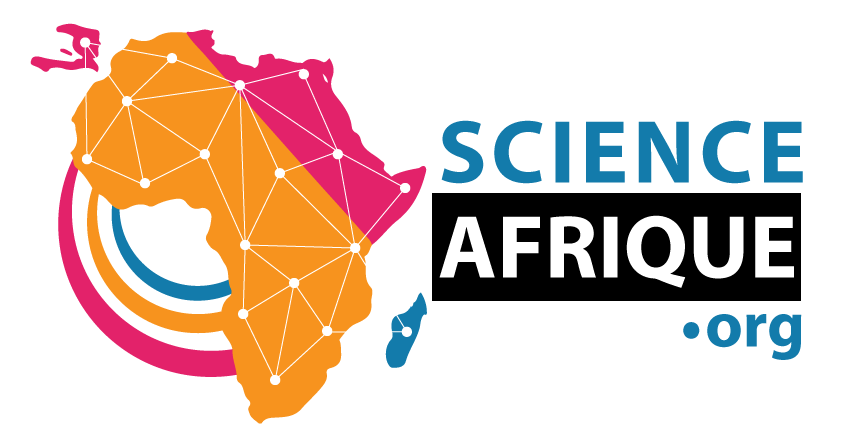À propos de la plateforme scienceafrique.org
L’idée de la plateforme scienceafrique.org est née au printemps 2018 en réponse aux résultats du projet de recherche-action SOHA (science ouverte en Haïti et en Afrique francophone) qui a bien mis en lumière les besoins de publication et de diffusion en libre accès des travaux scientifiques réalisés en Afrique francophone et en Haïti.
Elle est le résultat d’une collaboration entre des partenaires des Suds et du Nord, notamment le Laboratoire international de recherche-action sur la justice cognitive, la science ouverte et les communs (LIRAJ), l’Association science et bien commun (ASBC), l’Association pour la promotion de la science ouverte en Afrique et en Haïti (APSOHA) et le Centre interdisciplinaire de recherche sur l’Afrique et le Moyen-Orient (CIRAM).
Elle offre un hébergement gratuit et un accompagnement stratégique à des sites web de revues scientifiques, de blogs et de groupes ou centres de recherche, ainsi que des outils de recherche et des formations libres et gratuites. Tous ces contenus sont sous licence Creative Commons CC-BY-SA, donc réutilisables et traduisibles dans tout pays, à condition de citer la source.
Si vous désirez que votre revue, votre blog ou votre groupe de recherche adhère à la plateforme scienceafrique.org, merci de remplir le formulaire en ligne (voir le bouton ADHÉRER ci-dessus). Les informations ainsi collectées permettront à l’équipe de scienceafrique.org de faire une proposition qui répondra le mieux possible à vos besoins. L’équipe recevra avec plaisir toute demande ou suggestion visant à appuyer la recherche africaine et haïtienne.
Pour que la science africaine et haïtienne rayonne sur le web, en libre accès !
Awọn agutan ti awọn Syeed scienceafrique.org a bi ni orisun omi 2018 ni esi si esi ti awọn igbese iwadi ise agbese SOHA (ìmọ Imọ ni Haiti ati French-soro Africa), qui Kedere saami afihan awọn nilo fun ìmọ wiwọle atejade ati itankale ti imo ijinle sayensi ni Afirika-sọrọ Afirika ati Haiti.
O ti wa ni abajade ti a atinuwa ajọṣepọ entre awọn alabašepọ lati South ati awọn North, Pelu International yàrá fun Action-Iwadi lori Imo Idajo, Open Science ati awọn Commons (LIRAJ), awọn Science ati wọpọ Good Association (ASBC), awọn Association fun igbega of Open Science ni Africa ati Haiti (APSOHA) ati awọn Interdisciplinary Iwadi ile-iṣẹ on Africa ati awọn Aringbungbun East (CIRAM).
O nfun free alejo ati awon ilana media to wẹbusaiti ti ijinle sayensi irohin, awọn bulọọgi ati iwadi awọn ẹgbẹ tabi awọn ile-iṣẹ, bi daradara bi free ati ki o ìmọ orisun iwadi irinṣẹ ati ikẹkọ. Gbogbo awọn yi ti ni ooto labẹ a Creative Commons CC-BY-SA iwe-ašẹ, ki o le ti wa ni reused ati ki o túmọ ni Eyikeyi Latin, Pese awọn orisun ti wa ni gba.
Ti o ba ti O Yoo fẹ rẹ irohin, bulọọgi tabi iwadi ẹgbẹ lati da awọn scienceafrique.org Syeed, jọwọ Pari awọn online fọọmu (wo awọn ADHERATE bọtini loke). Ifitonileti ti a gba yoo gba aaye ẹgbẹ scienceafrique.org lati ṣe imọran ti yoo ṣe idaamu awọn aini rẹ julọ. Egbe naa gba awọn ibeere tabi awọn imọran lati ṣe atilẹyin fun Afirika ati Haiti.
Njẹ ki Imọlẹ Afirika ati Imọ Haitian le tan lori aaye ayelujara, ni wiwọle ọfẹ!
The idea of the scienceafrique.org platform was born in spring 2018 in response to the results of the SOHA action-research project (open science in Haiti and French-speaking Africa), which clearly highlighted the need for open access publication and dissemination of scientific work carried out in French-speaking Africa and Haiti.
It is the result of a voluntary collaboration between partners from the Global South and the North, including the International Laboratory for Action-Research on Cognitive Justice, Open Science and the Commons (LIRAJ), the Science and Common Good Association (ASBC), the Association for the Promotion of Open Science in Africa and Haiti (
It offers free hosting and strategic support to websites of scientific journals, blogs
If you would like your journal, blog or research group to join the scienceafrique.org platform, please complete the online form (see the
So that African and Haitian science can shine on the web, in open access!
